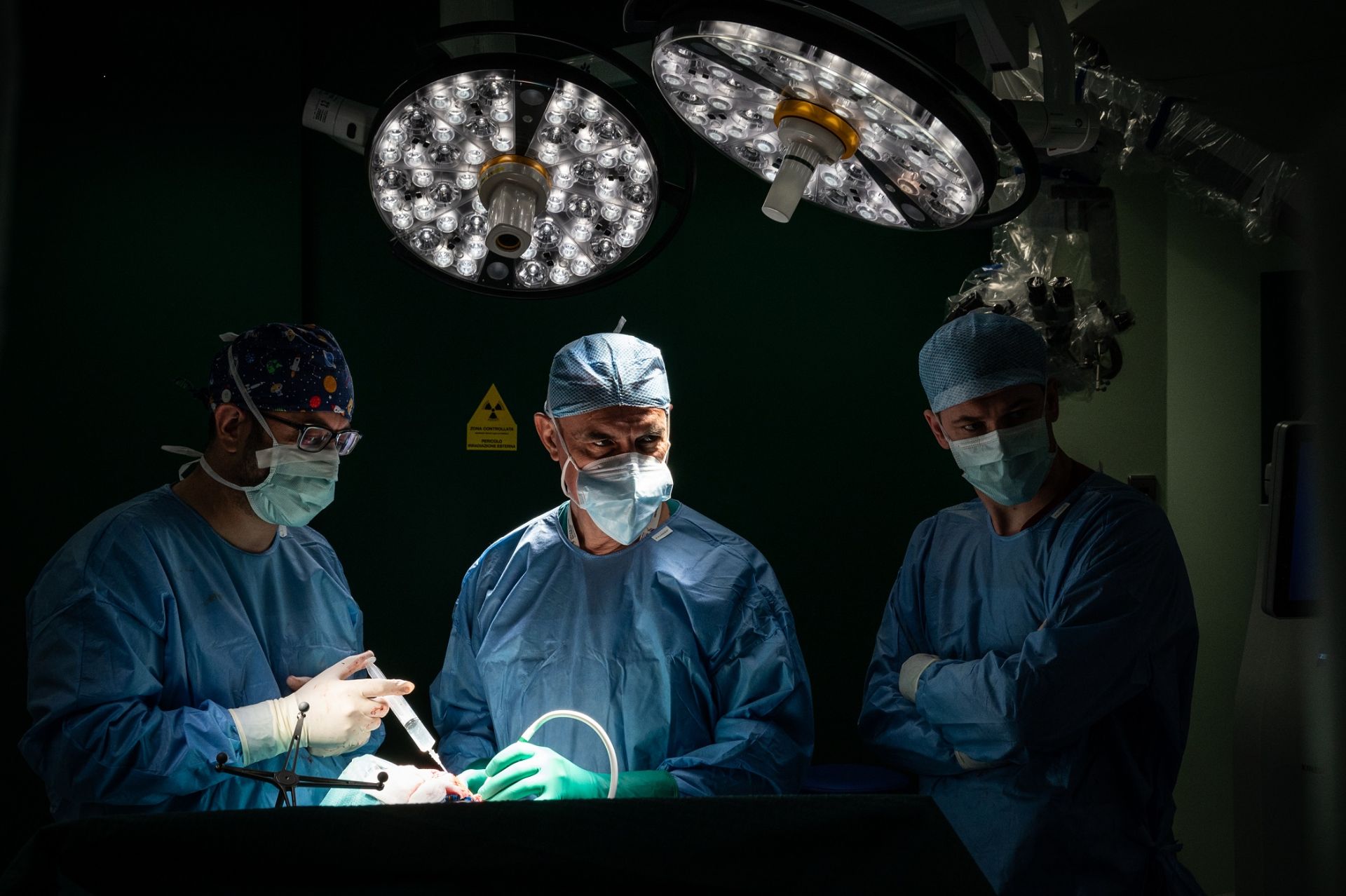MINE Lab, the laboratory on modular implantable neurotechnologies, is born
0/resolutions/res-l992x10000/MINE_lab_laboratorio_Neurotecnologie_impiantabili_modulari_UniSR_SSSA--(1)0.png)
The innovative laboratory for the development of cutting-edge implantable technologies was born from the collaboration between UniSR and the Scuola Superiore Sant'Anna
UniSR and the Scuola Superiore Sant'Anna (SSSA) of Pisa announce the creation of the innovative joint Laboratory on Modular Implantable Neurotechnologies (MINE Lab). This research initiative, led by Prof. Pietro Mortini, Professor of Neurosurgery at UniSR and Director of the Neurosurgery and Stereotactic Radiosurgery Unit of the IRCCS San Raffaele Hospital, and Prof. Silvestro Micera, Professor of Bioelectronics and Neural Engineering at SSSA, is dedicated to advancing the field of neurorehabilitation through the development of innovative, multimodal implantable technologies.
The main headquarters of the new joint laboratory is located in Milan, at the Vita-Salute San Raffaele University.
/resolutions/res-l1920x10000/MINE_lab_laboratorio_Neurotecnologie_impiantabili_modulari_UniSR_SSSA--(3).jpg)
Mission and approach
The MINE Lab's primary mission is to bridge the gap between implantable neurotechnologies and practical applications. To achieve this goal, the laboratory takes an iterative approach that involves:
- Customized neurotechnologies: developing interventions tailored to each patient's specific needs to maximize the effectiveness of rehabilitation strategies;
- Remote monitoring of clinical progress: using multimodal and intelligent systems to monitor patients' progress in unstructured settings and during their daily lives, going beyond traditional clinical contexts;
- Stakeholder engagement: active involvement of key stakeholders, clinicians, patients and caregivers, with the aim of improving the development of technologies that can be successful in clinical practice.
1/resolutions/res-l1920x10000/MINE_lab_laboratorio_Neurotecnologie_impiantabili_modulari_UniSR_SSSA--(3)1.png)
Research areas
Leveraging expertise in neurosurgery, neural engineering, neurorehabilitation, biomedical signal and image processing, wearable sensors and artificial intelligence, the MINE Lab will develop cutting-edge neurotechnology modules to:
- Restore movement: optimize neurostimulation technologies for cortical, spinal and peripheral neuromodulation, along with robotic devices for rehabilitation;
- Remote assessment: acquire motor functions in unstructured environments through multimodal wearable sensors and artificial intelligence algorithms;
- Motor decoding strategies: explore human-machine interfaces, such as ECoG-based brain-computer interfaces, that allow people to control and communicate with external devices through neural signals;
- Restoration of sensory feedback: develop multisensory modalities to restore thermal, tactile and proprioceptive functions.
/resolutions/res-l1920x10000/MINE_lab_laboratorio_Neurotecnologie_impiantabili_modulari_UniSR_SSSA--(2).jpg)
Future perspectives
In the coming years, the MINE Lab plans to expand its activities by developing artificial organs after cancer removal. The MINE Lab's multidisciplinary team will work closely with patients and physicians to address real-world clinical challenges, ensuring the practical application of cutting-edge implantable neurotechnologies.
States Prof. Mortini:
"In our DNA there has always been the will to develop new therapies, achieving extraordinary results in clinical practice. Vita-Salute San Raffaele University and Scuola Superiore Sant'Anna can create together a unique organizational and interdisciplinary synergy, which comes from the meeting of our expertise in neurosurgery and that of Scuola Sant'Anna in the fields of bioelectronics and neural engineering. Through this approach, we are creating a new scientific challenge and also a great opportunity for those affected by diseases currently considered incurable."

"The strategic partnership with Prof. Mortini's team and with the entire Vita-Salute San Raffaele University will allow us to test new technologies to help people with motor and sensory disabilities increase their independence and quality of life. Through the MINE Lab, neurotechnologies are poised to significantly improve their clinical impact, with expected results in both clinical and industrial applications."
concludes Prof. Silvestro Micera.
You might be interested in
/resolutions/res-c660x528/Pensa_Aorta_Congresso_UniSR-(3).png)
UniSR hosts the launch of the “Pensa all'Aorta” campaign

UniSR PhD Courses 2025-2026
0/resolutions/res-c660x528/Cassandra_studio_pazienti_pancreas_UniSR-(1)0.png)
Pancreatic Cancer: New Treatment Guidelines Arising from a Patient-Funded Study
/resolutions/res-c660x528/Milani_terapia_genica_UniSR-(1).png)
